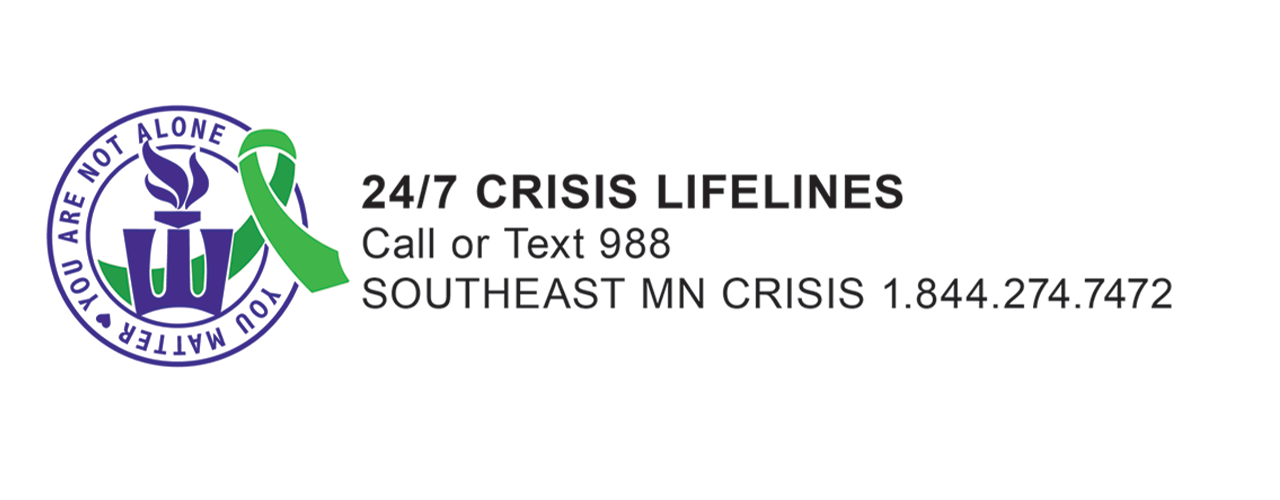
Starting this fall, all new Winona State IDs will provide students and employees with direct access to 24/7 crisis lifeline phone numbers.
This new initiative aims to assist individuals seeking mental health support by providing information on how to call or text the 988-crisis lifeline information listed on the back of the ID. The 988-crisis lifeline connects instantly to local suicide prevention and crisis intervention call centers that are open for help around-the-clock. The centers are equipped with skilled crisis professionals to support callers through a mental health emergency of any kind.
“With this resource available right at their fingertips, students, staff, and faculty can find the support they need quickly and conveniently,” said Winona State employee Mick Lynch.
Lynch serves as a Counseling Services Psychologist at Winona State and is a member of the Winona State Mental Wellness Task Force that championed the 24/7 Crisis Lifelines project, with the support of the University Card Services Office.
“[The numbers] are a small reminder that WSU truly does care about those in our community, and we want students and employees to use these resources when needed,” added Task Force co-chair Kateri Johnson.
Winona State University is the first school in the Minnesota State Colleges and Universities system to implement this easily accessible mental health resource. Members of the Mental Wellness Task Force hope the initiative will spread throughout the Minnesota State system, reaching even more people in need of mental health support.
“This is another demonstration of Winona State’s commitment to comprehensive support services that ensure students excel academically and thrive personally, leading to successful careers and meaningful lives,” said Task Force co-chair Denise McDowell.
The Mental Wellness Task Force’s campaign for readily available support serves as a reminder that students and staff are never alone when battling a mental health crisis.
“Even when it may not feel like it, help and support are available,” said Lynch, “Reaching out for help is not giving up; it’s refusing to give up, and it shows incredible strength.”

The Mental Wellness Taskforce collaborated with Card Services Retired Director Sue Groth and Creative Services Krisitin Gudmundson. Work of this magnitude is only possible with great commitment. Kudos to all involved.